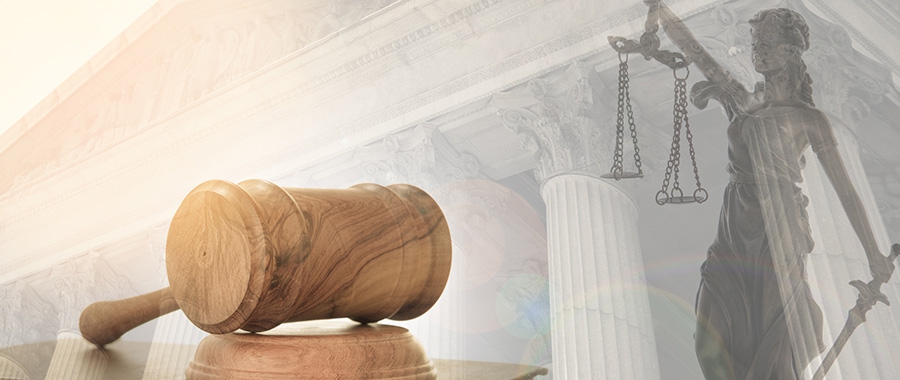The views expressed in our content reflect individual perspectives and do not represent the authoritative views of the Baha'i Faith.
If moral law always operates in the universe, how can we explain oppression?
We can learn about the practical or physical effects of moral law when we study the history of economic systems built on some form of oppression. Such immoral societies are doomed to failure because they assume that humanity is neither equal nor one organic family.
Eventually, the fallacious assumption that has produced such an erroneous economic oppression will undermine the most practical affairs of such societies, as is exemplified in the decline of feudalism in medieval Europe, the decline of plantation society in the American South, and in the decline of the apartheid system in South Africa. All of these societies subsisted effectively on slave labor and the disenfranchisement of the majority by a discrete segment of society. This same principle of the ultimate failure of economies based on injustice has been demonstrated repeatedly in the reign of colonial regimes throughout world history.
Of course, we could extend our discussion of the practical implications of moral law to virtually every facet of human endeavor, whether we examine the manufacturing of products or the organizing of the simplest kinds of enterprises. In the essays that follow we will discuss further the practical relationships of moral law to daily life, but for our purposes here it is sufficient to conclude that the system of reward and punishment integrated into the fabric of physical reality is not something we need to impose. The system is an inherent property of the Kingdom of Names.
Indeed, Baha’u’llah may well have alluded to these twin pillars of reward and punishment with the following passage:
Out of the wastes of nothingness, with the clay of My command I made thee to appear, and have ordained for thy training every atom in existence and the essence of all created things. Thus, ere thou didst issue from thy mother’s womb, I destined for thee two founts of gleaming milk, eyes to watch over thee, and hearts to love thee. – Baha’u’llah, The Hidden Words, p. 32.
In addition to whatever other meanings they imply, these “founts” may well refer to the twin pillars of reward and punishment as the benign guidance that is infused into every part of the physical world to stimulate autonomy of motion toward human perfection within each individual and within society as an aggregate, organic whole.
Grace and Mercy
In spite of our discussion of the direct and indirect methods by which the physical world is devised to instruct mankind, our outline of the Baha’i paradigm would be quite incomplete without a final ingredient that functions as a divine elixir to anoint and beautify the entire system—that final touch of perfection in God’s justice which we call “grace.”
It might seem strange to include grace as part of a system of justice, since the two terms seem antithetical—the term justice usually connotes the exact opposite of grace. Abdu’l-Baha acknowledges this antithesis when he states that “grace is to bestow without desert, and justice is to give that which is deserved.” – Some Answered Questions, newly revised edition, p. 267.
Therefore, since we are fallible and, from the standpoint of spiritual development, in a childlike state, if we were to be judged according to strict justice, we would surely be doomed.
Baha’u’llah confirmed as much in the beginning of the Book of Certitude where he described the irony of the fact that humanity has historically rejected the very divine educators sent to give us assistance:
And whensoever the portals of grace did open, and the clouds of divine bounty did rain upon mankind, and the light of the Unseen did shine above the horizon of celestial might, they all denied Him, and turned away from His face—the face of God Himself. Refer ye, to verify this truth, to that which hath been recorded in every sacred Book. – p. 4.
Of course, the term justice in its most ample sense designates propriety—that which is most appropriate and fulfilling of inherent purpose.
Therefore, if we liken humankind in its present stage of development to an adolescent youth, and if we further believe that God is at least as kind, loving, intelligent, and forgiving as a decent human parent, then the law of justice dictates that it is appropriate for God to have mercy and grace in His treatment of His own creation. Certainly a parent’s love does not cease because a child has made mistakes, even though the parent may temporarily respond with punishment to guide the wayward child aright.
Similarly, while God is sometimes portrayed in the scriptures of world religions as a strict judge, and while even the Baha’i writings praise the “fear of God” as laudable, all world religions teach that God is ever-forgiving and all-merciful. Of course, as we have also noted, grace and mercy cannot be imposed against our will. To receive bounty we must desire it and act on that desire. The Bab states in one prayer, “Glorified art Thou, O Lord, Thou forgivest at all times the sins of such among Thy servants as implore Thy pardon.” Thus when the Bab writes, “verily God will not forgive disbelief in Himself,” He is not necessarily describing God’s retribution so much as He is delineating the logical relationship between free will and grace.
God will not impose forgiveness, and disbelief as a rejection of divine reality implies an explicit choice on our part, a refusal of grace.
Baha’u’llah implied the same thing when he wrote, “Woe betide him who hath rejected the grace of God and His bounty, and hath denied His tender mercy and authority …” In other words, God’s grace and mercy are essential to our success in the physical world because we need many chances if we are to succeed.
Fortunately for us, this spiritual bounty is always available to us, regardless of what we may have done. But because our own desire for it and receptivity to it are necessary, mercy, grace, and forgiveness are not automatic. To receive this redeeming balm, we must follow the same pattern required for every other spiritual effort—knowledge, volition, and action. We must recognize what we need and act accordingly by expressing our desire in prayer and in obedience to the guidance of God as revealed to us throughout our association with the Kingdom of Names—through deeds.
To conclude, then, with these fundamental features of the Baha’i view of a justly functioning physical creation, we have constructed a basic understanding of how physical reality is devised to ensure the appropriate results for which it has been designed and created—“ever-advancing” individuals in the context of an “ever-advancing” civilization on this ever-evolving planet.
From the larger macrocosmic perspective, we perceive an organic, universal system—eternal in the past and eternal in the future, a system in which planets evolve spiritually and contribute to the benign purposes of the whole system and then, in time, cease to exist. Viewed in this way, the universe is like a vast body of God in which the planets, like cells in the human body, come into being, develop and nourish the universal body, and then go out of being when their purpose has been accomplished. Justice in this sense is the overall integrity and propriety of the Creator’s plan, whereby each atom in creation has an essential part to play in the abiding purpose of creation as a whole.
You May Also Like
Comments

















And grace my fears relieved;
How precious did that grace appear
The hour I first believed.
Through many dangers, toils and snares,
I have already come;
’Tis grace hath brought me safe thus far,
And grace will lead me home.
The Lord has promised good to me,
His Word my hope secures;
He will my Shield and Portion be,
As long as life endures.
I shall possess, within the veil,
A life of joy and peace.
The earth shall soon dissolve like snow,
The sun forbear to shine;
But God, who called ...me here below,
Will be forever mine.
When we’ve been there ten thousand years,
Bright shining as the sun,
We’ve no less days to sing God’s praise
Than when we’d first begun.